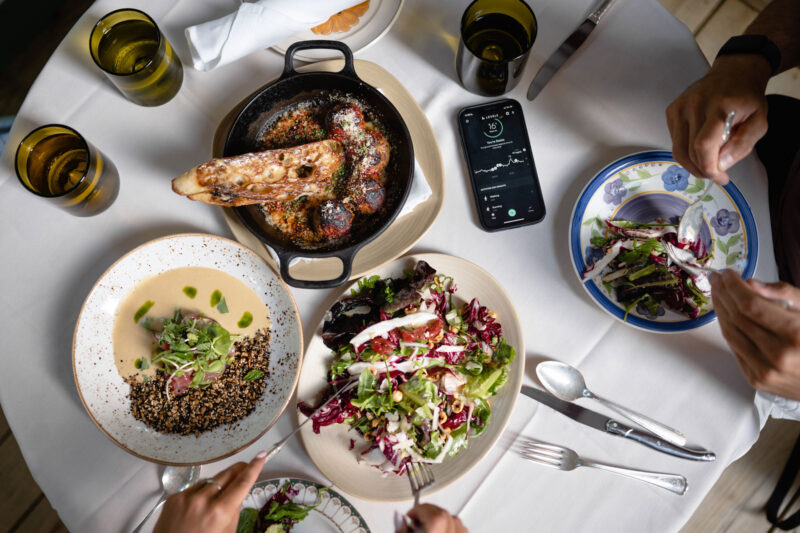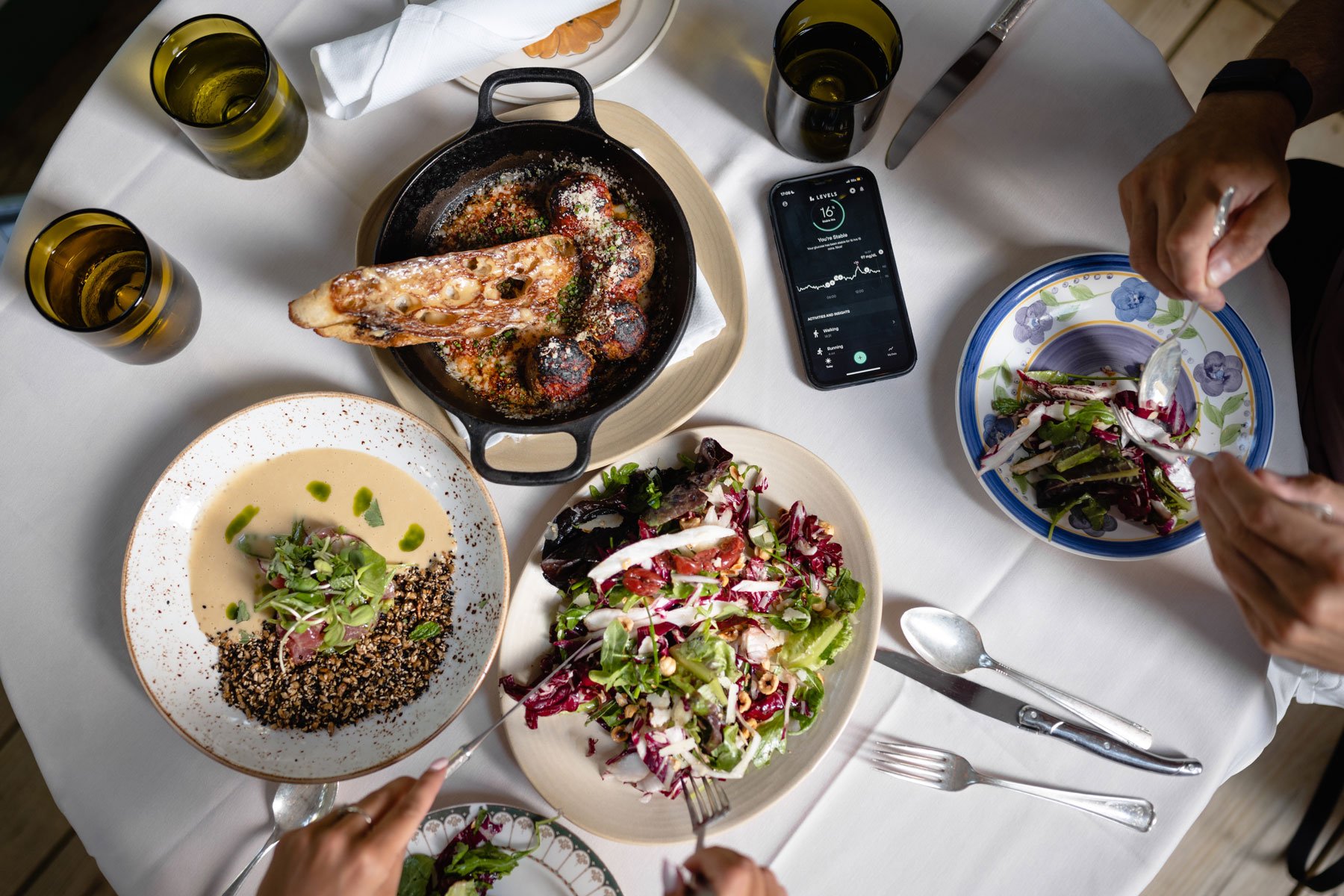The way we eat is a central part of our daily routine. It’s woven into our family lives, work schedules, and social calendars. Food can bring great pleasure as a reason for coming together, but changing how we eat can be challenging since doing so often affects those around us. Just because we’ve decided to make a personal change doesn’t mean that our friends and family are ready to do the same.
Social factors powerfully influence when we eat, what we eat, and how much we eat. For example, eating in groups often causes people to linger over their meals and eat more, and the dietary patterns of married couples tend to converge over time. One of the keys to successful behavior change is creating social and environmental conditions that support your new habits. But when you have a family or an active social life, a lifestyle change may impact those around you and lead to friction.
Whether eating for metabolic health means overhauling your current practices completely or just making minor adjustments, identifying your health goals and creating a plan to talk to the important people in your life about them are crucial first steps.
Practical Tips
Identify your goals.
Start by identifying your core motivations. Why have you decided to adopt a more metabolically friendly diet? Is your goal weight management, longevity, balanced mood, better sleep, clearer skin? If you’re unclear, journaling can help. In her book, Women, Food, and Hormones, Levels advisor Dr. Sara Gottfried recommends creating a value statement: “Think about what you’re hoping to achieve – and, most important, why these goals matter to you,” she writes. “This values statement will keep you motivated as you embrace this new way of eating and living, and it will be a reminder you can turn to again and again over the coming weeks whenever you need motivation.”
Try your best to come up with SMART goals: those that are specific, measurable, attainable, relevant, and time-bound. For example, instead of “I want to eat less sugar so that I lose weight,” try “I plan only to eat dessert after dinner twice per week to work towards my weight loss goal of 1 pound per week.” The more specific you are about your goals, the more likely your loved ones will understand your motivations. Having a firm set of attainable goals will also help you stick with your new diet changes if you don’t get the social support you hoped for.
Make a plan.
Identify who you need to have a conversation with. Start with members of your immediate household, as they are the ones who will likely be most impacted. Next, think about who you socialize with. If you go out for happy hour with your coworkers every week, you’ll likely want to discuss your new habits with them. You may also want to consider seeking out friends or peers on similar journeys to provide support and accountability.
Know who not to talk to. Your boss likely doesn’t need to know about your diet changes unless your office regularly eats lunch together. Neither does your sister’s friend or next-door neighbor. Being intentional about your audience will allow you to focus your energy on the conversations most integral to your success.
What to say – and not to say.
Regardless of who you’re talking to, emphasize your personal motivations for change (see #1). This can help minimize the chances that others around you feel judged. “I” statements can be very helpful here. For example, you might say, “I decided to cut out rice and potatoes at dinner because I notice that when I limit carbs in the evening, I have more energy in the morning.” This framing will likely elicit a more positive response than saying, “It’s important not to eat carbs at dinner so that you don’t turn into a couch potato,” or simply, “carbs are bad.”
Remember, this conversation is about you, so try not to criticize or offer advice. If you point out what you think is wrong with others’ eating habits, they will likely become defensive and less receptive. In time, seeing the benefits of your new lifestyle may pique their curiosity to try your new routine.
Consider location and timing.
Knowing when to have the conversation can be as important as knowing what to say. Do your best to choose a time when you and your audience are relaxed and undistracted, like at the end of the day or on a family weekend walk. If you’re speaking with members of your household, you might have the conversation on a Sunday before the start of a fresh week.
You’ll likely want to avoid broaching this topic in direct food settings, such as at the grocery store or mealtime. Discussing metabolic health with someone about to tuck into an indulgent dessert will likely make them feel judged or uncomfortable. Choosing a neutral time and place will help facilitate a calm and productive conversation.
Know when to end the conversation.
These conversations may not always go smoothly; part of effective communication is knowing when to back off. If your audience gets defensive or critical, their reaction is likely a sign that they’re not open to having the conversation right then. People may react negatively for many reasons: fear of lifestyle disruption, feelings of judgment, or skepticism of proposed results. Try to listen and empathize, but don’t let negativity permeate too deeply. You have the right to protect your motivation and journey.
Final Thoughts
Talking about lifestyle changes can feel scary or complex, and the conversation may not always go as planned. You can still be successful in your metabolic health efforts, especially if you’ve clearly defined your goals for yourself and communicated them empathetically to others. Knowing when, how, and with whom to discuss your new habits will increase your chances of gaining meaningful support as you transition to a more metabolically healthy lifestyle.








